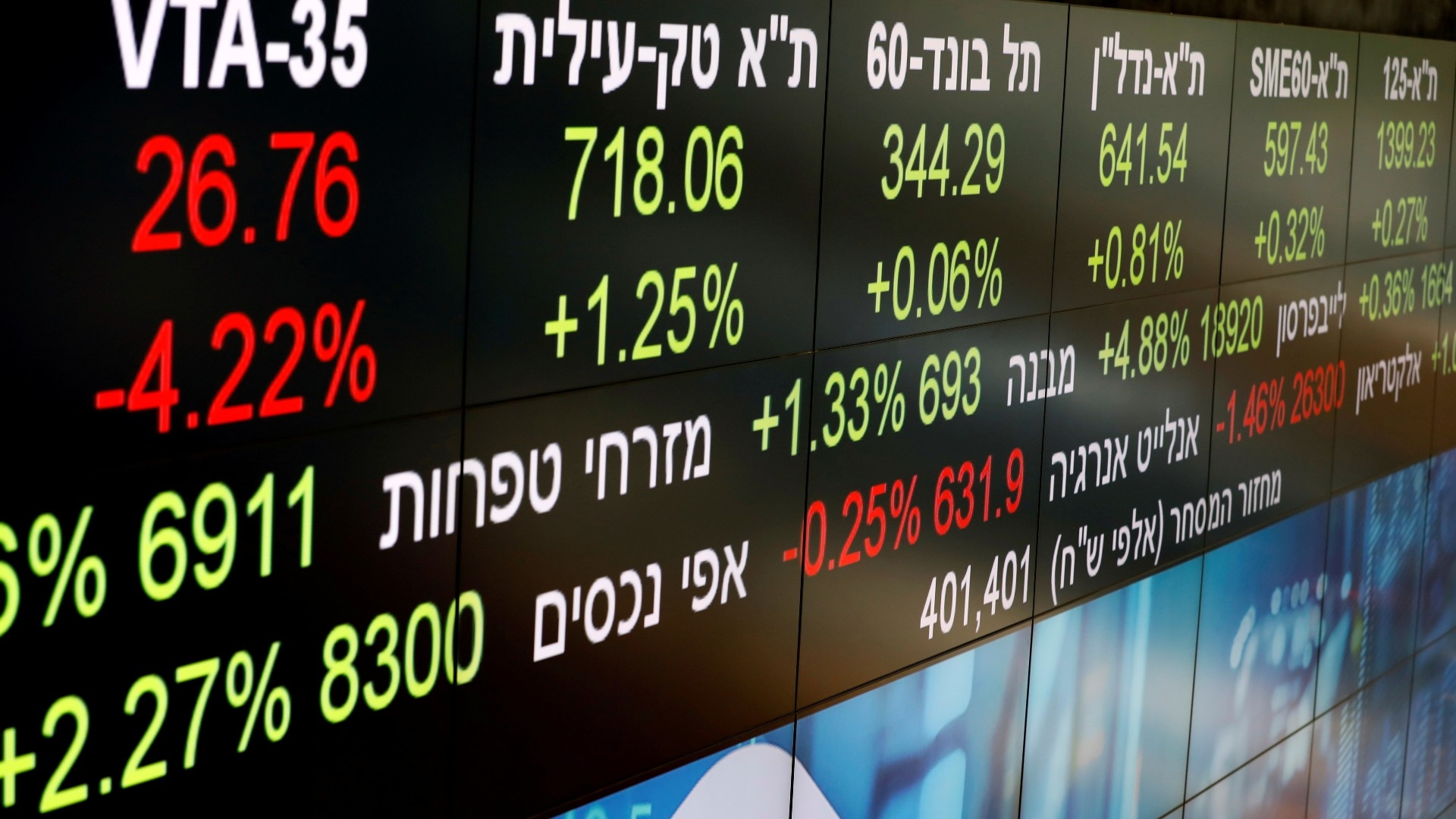Israel's shekel and stock market tumble in response to political turmoil

Israel's currency, the shekel, and its stock market fell on Monday, a trend analysts believe is linked to fears over Prime Minister Benajmin Netanyahu's plans to overhaul the judiciary and a recent spike in violence.
On Monday, the shekel fell for the fourth straight day, hitting 3.488 to the US dollar before rebounding slightly to 3.47, a drop of 0.9 percent from the day before.
Meanwhile, the blue-chip Tel Aviv 35 index dropped 1 percent and the broader TA-125 index dipped 1.7 percent. Government bond prices, meanwhile, fell as much as 1 percent.
Israeli financial analysts said that the decrease is due to fears over controversial reforms Netanyahu plans to introduce, which would limit the judiciary's power over the government. However, others argued it is part of a regular economic cycle influenced by political events.
Jonathan Katz, chief economist at Leader Capital Markets, told Reuters stocks fell "for the same reason the shekel is weakening - concern regarding the judicial reform".
On Friday, dozens of Israeli bank directors warned Netanyahu that some clients are withdrawing cash from their accounts and exchanging it for US dollars as they fear the shekel will weaken more as political tension escalates.
Netanyahu met 30 bankers and insurance, tourism and tech directors at the headquarters of his Likud party in Tel Aviv.
Dov Kotler, the CEO of Bank Hapoalim, told Netanyahu most people who withdrew their deposits in the past weeks, though not large sums, were depositors who worked in the high-tech industry.
Israel's technology industry is one of the country's vital sectors. In 2021, it employed 10 percent of all workers in the country, produced 15 percent of Israel's GDP, and 43 percent of all exports, according to a National Insurance Institute report.
Last week, 270 economic experts cautioned Netanyahu that authorising changes to the judicial system, which would give the Knesset the power to vote down Supreme Court rulings with a thin majority, is threatening Israel's democracy.
In a statement, they warned that Israel's credit rating would decline, and foreign investments would be deterred, while tech workers and companies could move abroad, resulting in a "brain flight" from Israel and lasting damage to the economy.
Middle East Eye propose une couverture et une analyse indépendantes et incomparables du Moyen-Orient, de l’Afrique du Nord et d’autres régions du monde. Pour en savoir plus sur la reprise de ce contenu et les frais qui s’appliquent, veuillez remplir ce formulaire [en anglais]. Pour en savoir plus sur MEE, cliquez ici [en anglais].




